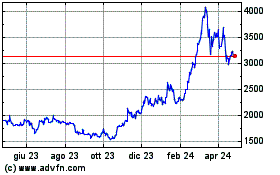

The early days of the Trump administration saw a flurry of
activity that could give the crypto industry an idea of forthcoming
crypto regulations, namely that they may not be regulated as
securities.
Practitioners have decried a lack of concrete change in the form
of new rules and guidance. The skeptics have their reasons. The
formation of the crypto task force,
Trump’s crypto executive
order, crypto czar David Sacks’ lone press
conference, and the digital asset
reserve has been criticized as mere theater.
The real work of regulating comes not in press conferences but
in the guidance, enforcement, and rulemaking that support the
structure of rules-based systems.
A faithful account of all of the cryptocurrency decisions from
the Trump administration reveals a new approach to enforcement and
regulation that could meaningfully affect the rights of operators
in the United States.
Trump’s regulatory approach opens up banking to crypto
In the dog days of the Biden administration, a policy known as
“Operation Chokepoint 2.0” became a major scandal in certain crypto
media channels. The allegations were that, during the Obama
administration, the Justice Department developed a program called
Operation Choke Point that it used to surveil and curtail certain
disfavored businesses like payday lenders and firearms
dealers.
Some speculated that the Biden administration adopted the same
policies for cryptocurrency companies. There was a lot of back and
forth over this issue — some denied it ever happened, but many
cryptocurrency firms and individuals lost access to banking
services.
Whether this was a directive or simply an unforeseen consequence
of other policies, many in the industry were incensed; the issue
became politically charged.

Crypto execs went on popular shows and podcasts like The Joe
Rogan Experience to discuss debanking. Source:
Nic
Carter
As a result, one of the first steps the Trump administration
took regarding crypto was to fix the industry’s debanking problem.
This began only two days after Trump took office with
Staff Accounting
Bulletin 122 (SAB 122), a directive that repealed the
Securities and Exchange Commission’s (SEC) SAB 121 — which had
effectively prohibited banks from holding cryptocurrencies by
making it difficult and inefficient to do so.
On March 7, the Office of the Comptroller of the Currency (OCC)
released its own interpretive guidance, Letter 1183,
itself undoing Letter 1179.
The latter required banks to ask OCC’s permission to participate in
certain crypto-native activities like custodying cryptocurrency,
holding stablecoin reserve deposits and functioning as validation
nodes.
On March 28, the Federal Deposit Insurance Corporation (FDIC)
followed up with its own guidance. It
rescinded the Biden era FIL-16-2022,
which required FDIC-supervised institutions to notify the FDIC of
their intent to dabble in crypto and provide information on
possible risks.
Acting FDIC Chair Travis Hill also signaled that “banking regulators
should not use reputational risk as a basis for supervisory
criticisms” at all.
It may be difficult to separate the effects of these policies so
early in the administration because banks are large institutions
and move slowly. But across three agencies the rules have changed
substantially and dramatically, which could have major effects on
cryptocurrency access to banking services in the medium to long
term.
Fully dismissed crypto cases
Virtually every pending SEC matter with a cryptocurrency
defendant has been
dropped. While nice for the targets, it doesn’t create much
precedent that anyone can build off of. That said, the result does
suggest that the underlying activities in those dropped cases won’t
be pursued for enforcement, at least for the immediate future.
Related:
Ripple celebrates SEC’s dropped appeal, but crypto rules still not
set
It’s helpful, then, to consider what activities have received
implied license through this campaign of dropped enforcement.
There are a number of cases in which the SEC filed a complaint
and litigated to varying degrees of resolution, which the
commission either fully dropped or settled without admissions of
wrongdoing on the part of the targets:
These cases revolved around the unregistered sale and offer of
securities under the Securities Act of 1933, and acting
unregistered as a broker, dealer, clearing agency and exchange.
While the allegations and actors are different, the common thread
between them is that none would be subject to the laws in question
if the underlying assets were not themselves securities.
The sole exception is Consensys, which was accused of providing
staking as a service without first registering it as a security.
While the texture of this claim is familiar, the activity is
somewhat different than the pure offer and sale of
securities.
This dismissal, along with the related guidance concerning
mining pools, suggests that the current SEC does not consider most
token-generating activities to be investment contracts,
either.

Crypto firms were quick to celebrate after the SEC dropped
cases against them. Source: Bill
Hughes
Stayed pending resolution
Other cases have been filed in court and halted through joint
motions to pause the suits. This is presumably in anticipation of
eventually dismissing them, but since they have not yet been
dismissed, it is hard to say for sure.
These cases mostly differ from the ones that have already been
dropped in that, in the case of Binance and Tron, the government
brought allegations not just of unregistered operation but of
actual fraud as well. The pause indicates the government may be
conciliatory, but the aggravating nature of these allegations is
stalling resolution.
Gemini fits more naturally into the category above, and it is
not clear why that case has not yet been dropped.
SEC drops investigations into crypto firms
There are other cases where the SEC opened investigations and
even issued Wells notices indicating potential enforcement.
However, the commission has reportedly ceased investigations after
Trump’s inauguration.
The investigations were focused around allegations that
non-fungible tokens (NFTs) were securities, or that intermediaries
like Robinhood or Uniswap were operating as unregistered
brokers.
While little has come of these actions, on balance they match
the trend suggested above.
What the dismissals say quietly
None of the dismissals could be considered an SEC edict that
certain crypto activities are legal. But taken together, these
dismissals, pauses and dropped investigations paint a clear picture
of how the current SEC thinks about cryptocurrency’s place in
securities regimes.
The SEC dropped charges where allegations revolved around
operating as a broker, dealer, clearing house or exchange. This is
consistent with the position that the underlying assets themselves
are not securities.
The same is true about cases of issuance. The commission dropped
charges alleging that an entity issued securities in the form of
cryptocurrency tokens.
Still, claims of fraud and market manipulation have not yet been
dropped. This might indicate a reticence among commission attorneys
to let these claims go. Still, if the assets at hand are not
securities, the SEC will not be the correct agency to bring those
claims, and so, if the SEC is consistent, then it will likely drop
these cases too.
Furthermore, in three
official
statements,
the SEC notified the public that traditional memecoins,
proof-of-work mining, including pooled mining, and traditional
“covered” or asset-backed stablecoins denominated in dollars are
not subject to securities laws.
Related:
Crypto has a regulatory capture problem in Washington —
or does it?
This, alongside the chain of dismissals, suggests that secondary
market sales of fungible cryptocurrency tokens, NFTs, and
staking-as-a-service products are also outside of the scope of
traditional securities law.
Some might argue that this is more confusing than clarifying,
but applying the principle of Occam's Razor would suggest the SEC
simply does not consider cryptocurrency assets to be subject to
securities laws as currently construed.
But what does it all mean?
“Flood the Zone” is a tactic that Trump strategist Steve Bannon
made famous during the president's first term, and it might now
apply to the manic flurry of policy and dismissals over the past
few months.
Take any one at face value and it would be easy to discount the
project as insubstantial, but together they arguably represent a
sea change in the crypto policy of the United States
government.
Banks, once effectively prohibited from holding
cryptocurrencies, are now unrestrained. Companies once bogged down
in litigation are now free. They may well be followed by new
entrants comforted by their survival.
At a biweekly clip, the SEC is releasing new guidance as to
which products exist outside its remit. And Trump nominee Paul
Atkins isn’t even in the door yet.
This is a dramatically improved regulatory environment, and
there are now affirmatively legal paths through which industry
participants can do business onchain.
Magazine:
3 reasons Ethereum could turn a corner: Kain Warwick, X
Hall of Flame
...
Continue reading US gov’t actions give clue about
upcoming crypto regulation
The post
US gov’t actions give clue about upcoming crypto
regulation appeared first on
CoinTelegraph.
Grafico Azioni Ethereum (COIN:ETHUSD)
Storico
Da Mar 2025 a Apr 2025

Grafico Azioni Ethereum (COIN:ETHUSD)
Storico
Da Apr 2024 a Apr 2025
